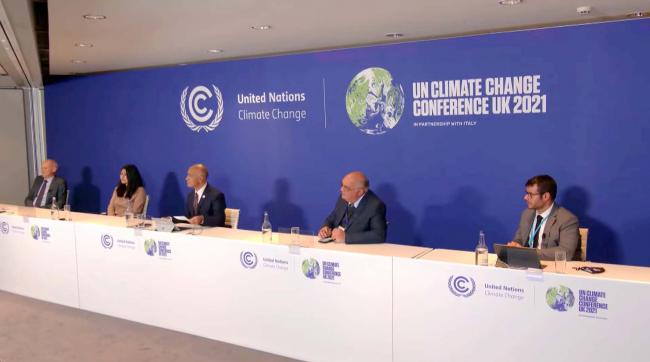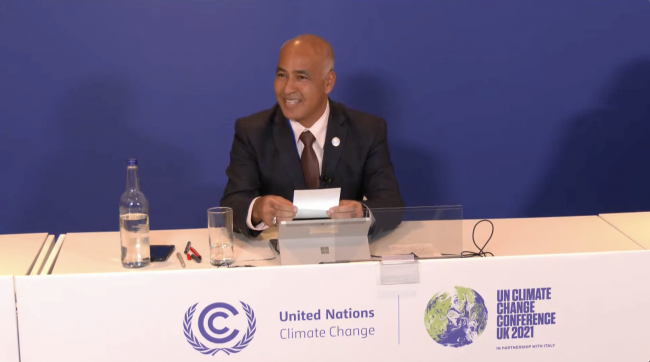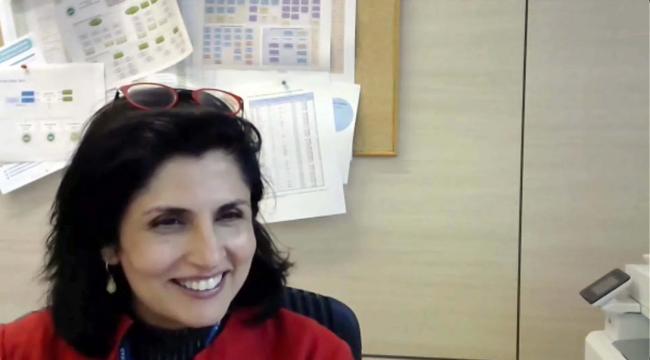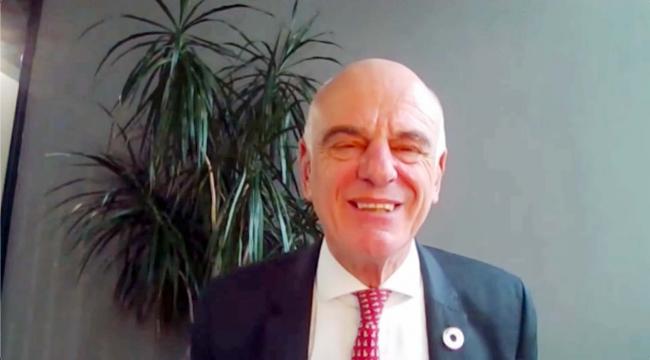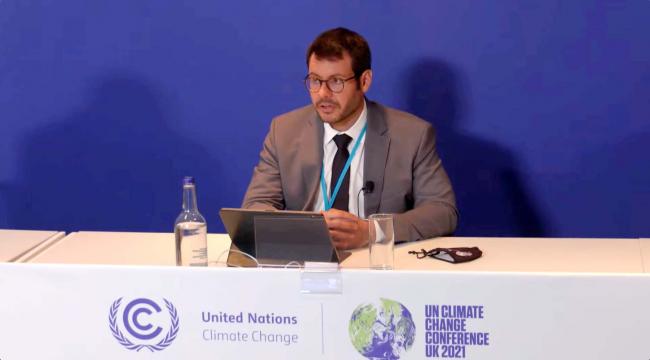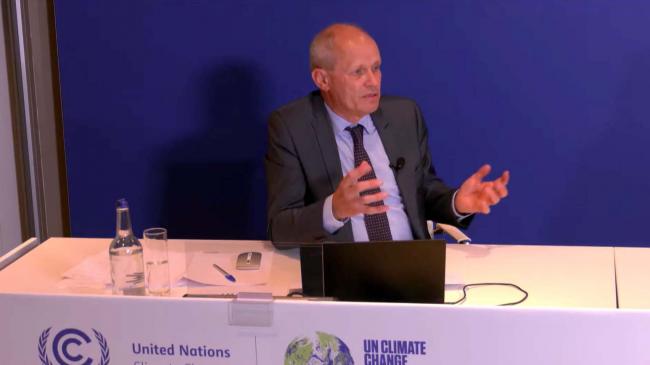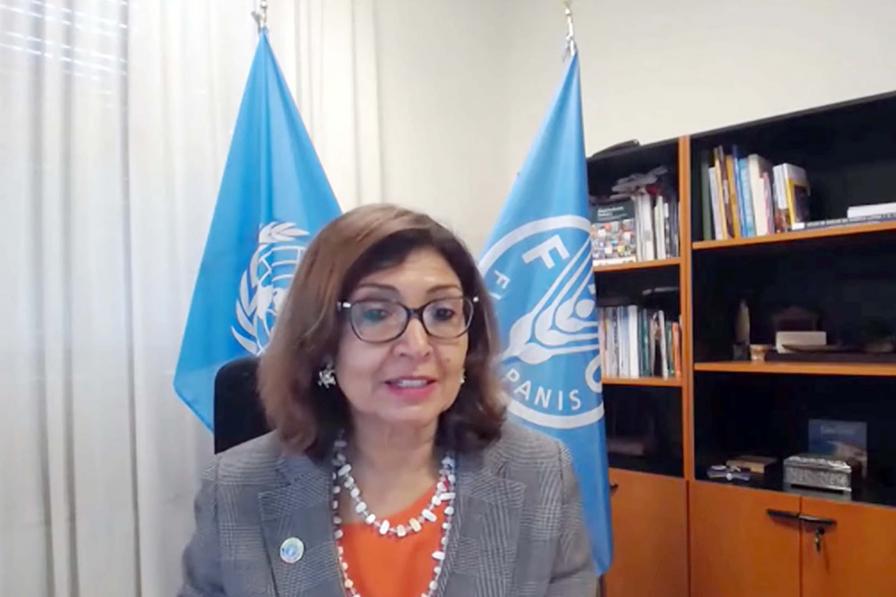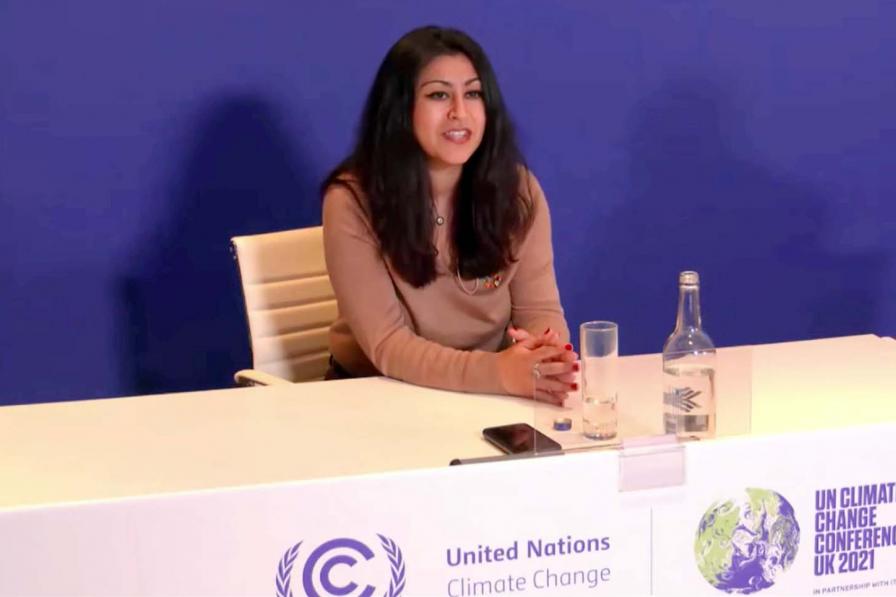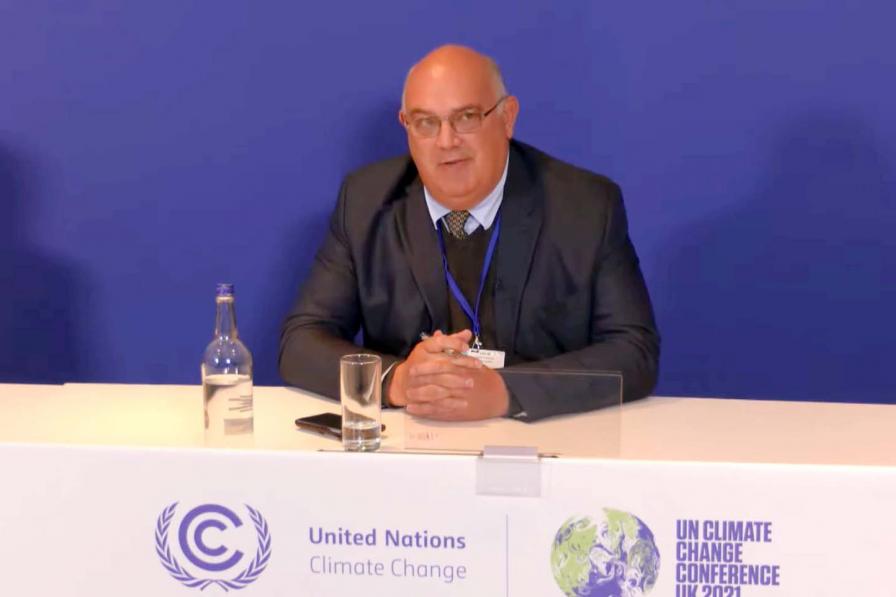Accelerating the Implementation of the Paris Agreement Through Innovative Climate Resilient Agri-food Systems
Agriculture and climate change are interconnected—the former is both a source and victim of the latter. How can technology and innovation transform food systems for a more sustainable future? And how can the outcome of COP 26 integrate these systems to help achieve climate goals? An event, organized by the Food and Agriculture Organization of the UN (FAO), sought to explore these issues more deeply. Bringing together practitioners from both the public and private sectors, the event provided a space for participants to express their views on achieving climate-resilient agri-food systems which aim to: provide food security; mitigate greenhouse gas (GHG) emissions; increase resilience; and restore biodiversity.
Zitouni Ould-Dada, FAO, welcomed participants by stressing that technological innovation is key to building climate resilience.
Maria-Helena Semedo, FAO, opened the discussion by reminding participants that climate change is a main driver of food insecurity and threatens to “reverse years of progress in eliminating hunger.” She noted that, while agri-food systems contribute to a third of global GHG emissions, agriculture must be a central part of the solution to the climate crisis. Pointing out that 95% of Nationally Determined Contributions (NDCs) prioritize climate action in agriculture, she emphasized that any innovations must recognize the needs and capacities of women, youth, and Indigenous Peoples. Technology flows, she said, must: be ambitious, linked, and scaled up; link public and private institutions, especially in rural areas; and bring innovative solutions that disrupt business as usual. She concluded by saying agri-food systems must be at the forefront of innovations.
Keynote Addresses
Opening the first of two keynote addresses, Jyotsna Puri, International Fund for Agricultural Development (IFAD), underscored that current innovations have not been sufficient to deal with the uncertainty and variability of climate change. She stressed the importance of identifying existing innovations that could be scaled up, such as blockchain, which can help promote transparent financial flows. In implementing innovations, she stressed the need to think about inclusive and transparent approaches, notably by looking at problems in an integrated and interdisciplinary manner: people must think about “how things work, rather than what works.” She also argued that innovation is needed in public and private financing, saying public goods must be supported and converted into technologies for the most vulnerable.
David Nabarro, Skills, Systems & Synergies for Sustainable Development (4SD), reported on the recent UN Food Systems Summit, underlining that a systems view of food requires us to support multiple perspectives. He recounted that the Summit engaged in: a science-based track, where challenges were identified by expert groups, as well as action areas, to shift systems into sustainable, equitable, and resilient food systems; and a multi-stakeholder engagement track, which engaged 148 countries in exploratory dialogues that encouraged diversity and inclusion. He called for innovations that include, among others, Indigenous Peoples, smallholders, food sector workers, youth, and women in food systems transformation.
Panel Discussion
In the subsequent panel discussion, Tomas Duncan Jurado, Permanent Representative of Panama to FAO, the World Food Programme (WFP), and IFAD, highlighted the need for countries to develop their individual funds to invest in food systems innovations. He emphasized the impact of COVID-19 and conflict on countries’ abilities to adapt.
Ezgi Barcenas, Anheuser-Busch inBev, communicated her company’s commitment to sustainability in local agricultural supply chains. She said Anheuser-Busch takes a “farmer-centric” approach to ensure the farmers with which they work are “scaled, connected, and financially empowered.” She called for innovation at the local level to provide technologies, such as mobile payment services, and access to crop insurance.
Theo de Jager, President, World Farmers Organization (WFO), reminded participants that digitalization and industrialization have “made the world very small for farmers” by increasing competition. He argued that, in rethinking food systems, farmers must take ownership of the transformations required, including coming up with solutions themselves. He also explained that the necessary change may not be “the tool in the hand,” but rather how food is transported to hungry people. He said enough food is already produced to feed the world’s population.
Noting the majority of the world’s water use is for agricultural production, Torgny Holmgren, Stockholm International Water Institute (SIWI), pointed to three major challenges:
- the world needs to grow more food with less water, using water-smart farming practices, traditional water catchment techniques, and fewer water-dependent crops;
- food security must be strengthened as climate change worsens, both through innovative farming techniques and financing; and
- carbon emissions from agriculture must be reduced.
He concluded by explaining that managing water is “about innovation, but it’s also about behavior,” and water management techniques can help farmers become more resilient.
In the ensuing discussion, panelists and speakers discussed their hopes for outcomes at COP 26 related to: innovation in agri-food systems; the need for coordinated and systematic approaches; and the importance of nature-based actions alongside technological innovations, such as blockchain.
Eduardo Mansur, FAO, underlined FAO’s work with 70 countries to update provisions in their NDCs for agriculture in their long-term strategies. He stressed that the transformation of agri-food systems to become more efficient, inclusive, resilient, and sustainable is both possible and necessary. He concluded the meeting by underlining that agri-food systems must be part of the solution to the climate crisis.
More information
Contact
Julia Wolf | Julia.Wolf@fao.org
Christabel Clark | Christabel.Clark@fao.org
To receive free coverage of global environmental events delivered to your inbox, subscribe to the ENB Update newsletter.

